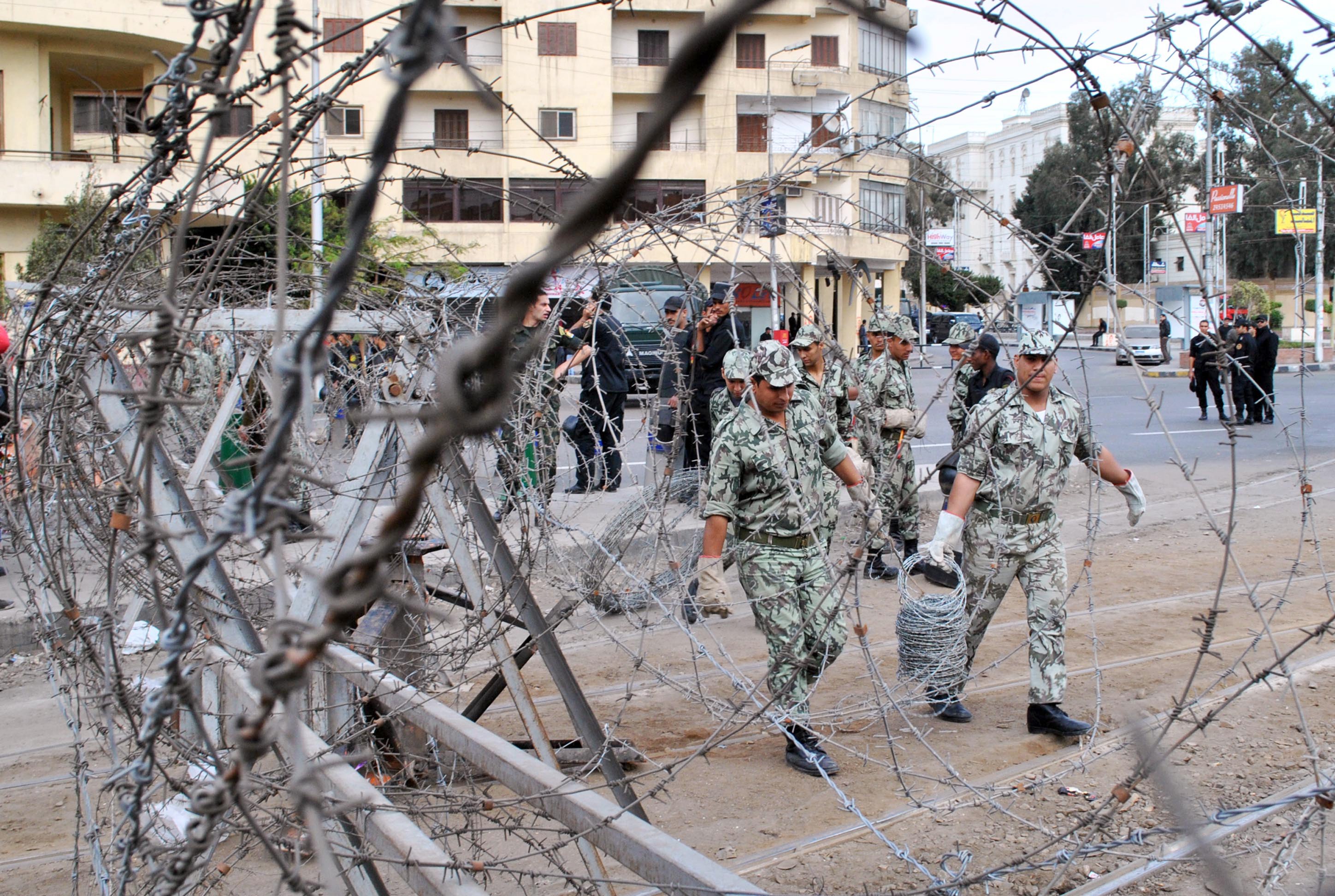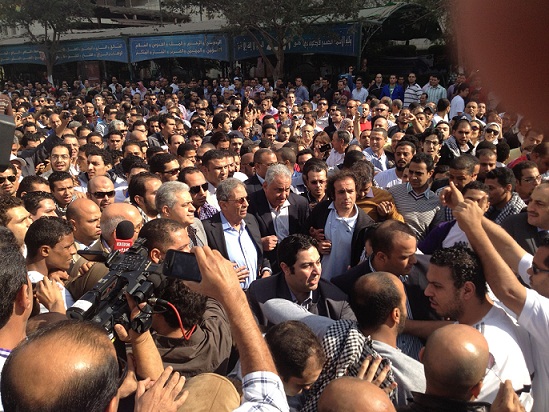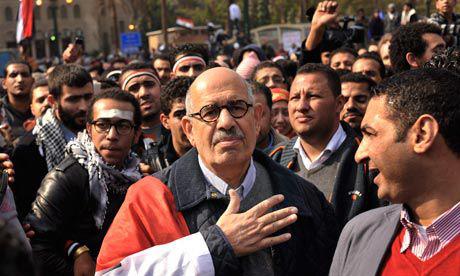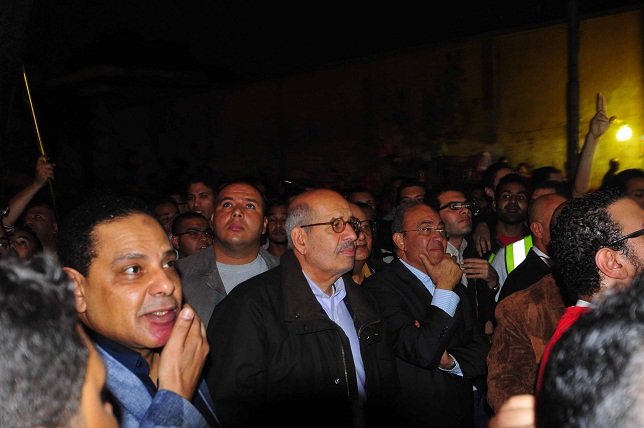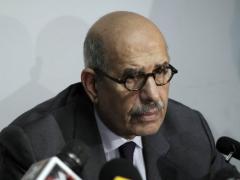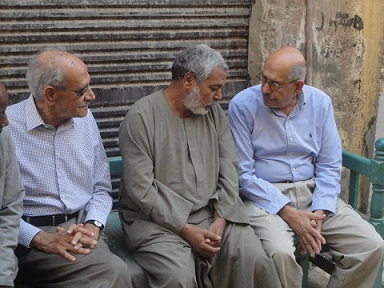El-Badawi meets Morsy despite NSF boycott
Al-Wafd leader met with President Mohamed Morsy despite the coalition his party…
Opposition marches to Presidential Palace
Concrete walls and barbed wire set up
Opposition rejects new presidential decree
NSF opposes referendum and calls for more protests
ElBaradei spends the night in Tahrir
National Rescue Front considers marching to presidential palace
ElBaradei leads Shubra march against presidential decree
Thousands fill Tahrir square opposing Morsy's constitutional declaration
ElBaradei warns of civil war risk
Nobel Peace Prize winner rails against Morsy in spree of interviews
ElBaradei meets with Morsy
Al-Dostour chairman shares his party’s vision with the president and discusses the…
ElBaradei speech criticised by Al-Nour spokesman
ElBaradei called Islamists “clowns” and said his plan would do more than…
ElBaradei to meet Morsy Tuesday
Al-Dostour chairman calls to dissolve Constituent Assembly
ElBaradei: The constitution is our main struggle
Al-Dostour leader in Brazil to speak about Egyptian and regional issues
